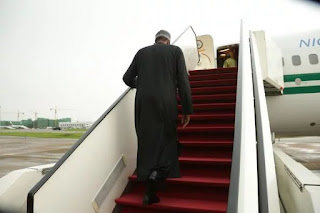By Kennedy Emetulu
If, as is likely, Prince
Abubakar Audu, the gubernatorial candidate of the APC in the ongoing Kogi
election has passed on, then a legal question to be decided by INEC and the
courts is unquestionably before us, because the Constitution and the Electoral
Act seemingly make no provisions for death of a candidate at this point of an
inconclusive election. It’s the sort of challenge that the new INEC leadership
under Professor Mahmood Yakubu would not have prayed for.
*Late Abubakar Audu
Let’s consider where we are.
We have had an election held on Saturday, November 21, 2015. INEC has come out
to announce that the election is “inconclusive”, because, according to the
Returning Officer, Professor Emmanuel Kucha, the collation of results from the
21 local government areas of the state showed that the cancelled votes were
higher in number than the margin between the leading candidate, Prince Abubakar
Audu of the APC and the PDP candidate, Captain Idris Wada who was the
runner-up. The Commission therefore decided on a supplementary election to
determine the winner, but with no date fixed yet. So, in a de facto and de jure
sense, the election is still ongoing. But then, something happened after this
decision was taken. One of the candidates, Prince Abubakar Audu reportedly died
before the conclusion of this election or before the proposed supplementary
election that should have concluded the whole process.
So, what does our law say?
Here is what the Constitution says:
Section
181(1): “If a person duly elected as Governor dies before taking
and subscribing the Oath of Allegiance and oath of office, or is unable for any
reason whatsoever to be sworn in, the person elected with him as
Deputy-Governor shall be sworn in as Governor and he shall nominate a new
Deputy-Governor who shall be appointed by the Governor with the approval of a
simple majority of the House of Assembly of the State”.
Clearly, this provision does
not apply to the situation on the ground, because Prince Abubakar Audu was not
the Governor-Elect before he died. So, Abiodun Faleke, his running-mate was not
elected the Deputy-Governor and therefore cannot be sworn into office in line
with Section 181(1).
How about the
Electoral Act 2010 (as amended)? Here is what it says:
Section
36 (I): “If after the time for the delivery of nomination paper
and before the commencement of the poll, a nominated candidate dies, the Chief
National Electoral Commissioner or the Resident Electoral Commissioner shall,
being satisfied of the fact of the death, countermand the poll in which the
deceased candidate was to participate and the Commission shall appoint some
other convenient date for the election within 14 days”.
Again, technically speaking,
this section does not seemingly apply to the situation we are in. This is
because the poll has already commenced, but is yet to be concluded before the
candidate died.
Further, with regard to the
change or substitution of a candidate by a political party, the Electoral Act
in section 33 says: “A political party shall not
be allowed to change or substitute its candidate whose name has been submitted
pursuant to section 32 of this Act, except in the case of death or withdrawal
by the candidate”. Section
32 (1) of the Electoral Act referred to above says: “A candidate for an election
shall be nominated in writing by such number of persons whose names appear on
the register of voters in the constituency as the Commission may prescribe”.
So, what section 33 is saying is that a political party cannot substitute the
name of anyone duly nominated under section 32(1) with another name or
candidate except in the case of (1) death and (2) withdrawal.


















